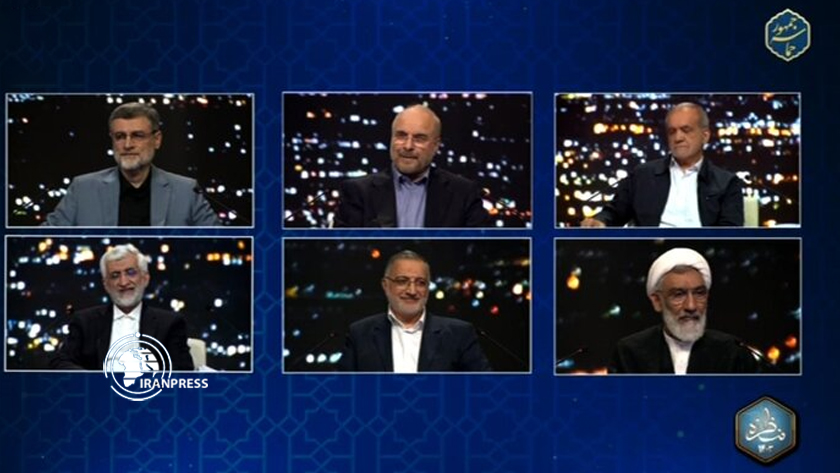In the ongoing presidential debates of Iran, candidates have showcased their economic strategies and visions for the growth of the country. Mohammad Bagher Ghalibaf, taking the podium first, emphasized on the importance of public participation in controlling inflation and facilitating economic growth. He drew attention towards empowering the middle and lower rungs of the society, notably the laborers, office workers, and welfare seekers. Alongside economic issues, Ghalibaf underscored the need for cultivating a culture of labor, production, and consumption.
He urged for increased focus on productivity, a key factor in Iran’s economic growth, suggesting the inclusion of scholars and experts to achieve the same. Ghalibaf also highlighted issues relating to wastage of vital resources, drawing specific reference to measures needed to increase utilization of flare gas energy from a mere 7.5% to a possible 15%. Speaking on international sanctions, Ghalibaf called for a unified and diligent approach involving administrative agencies and diplomatic channels.
Turning to organizations such as BRICS and Shanghai Cooperation Organization, Ghalibaf suggested these offered potential opportunities to enhance economic growth and productivity.
Masoud Pezeskian, another candidate making his case, advocated for unity and popular participation in administrative processes while denouncing partisan behavior. He drew attention to the forthcoming 7th five-year development plan for Iran, emphasizing that achievement of the projected 8% growth outlined in the plan required openness towards the external world.
Pezeshkian also underscored the need for predictability in the economic sphere to boost business confidence and foster investment. This, he suggested, could be drawn from international experiences as no country could independently foster economic growth without foreign investment and exports. He labeled the sanctions as a catastrophe and stressed the necessity of transparency in the economy and the importance of marketing to facilitate global trade.
Saeed Jalili, the third major speaker, reiterated the significance of economic development, contending that it should not be confined to investment alone, but also to sound management, human resources, and capital. Repeatedly stressing on the identification of domestic opportunities, Jalili cited the role of academia in realizing the development plan. He also emphasized the importance of controlling inflation through measures such as control of foreign currency rates.
In similar vein, Alireza Zakani highlighted the issue of economic independence and advocated for de-dollarization and resurgence of the national currency. He pointed towards knowledge-based production, production with high value-added, reliance on people’s participation, and fair distribution of wealth as key elements of economic growth.
Mostafa Pour-Mohammadi voiced out against the US sanctions, identifying their disruption of Iran’s banking transactions as a major consequence. He furthermore stressed the need for consensus and trust-building among the people, and criticized existing trends that impede efforts to lift the sanctions.
As the debate progressed, Amir-Hossein Ghazizadeh Hashemi added his voice to the discussions, urging for a redirection of the country’s economic policies towards production and investment that would benefit the Iranian people. He also highlighted the importance of leveraging technology for beneficial production, and the cultivation of a competitive ethos in the economic field.
The Iranian presidential candidates’ discussion, simultaneously heated and insightful, has provided a snapshot of the country’s prospective economic journey. The road to the Presidential office remains densely occupied, with the final destination yet to be determined.
